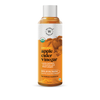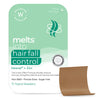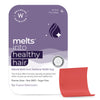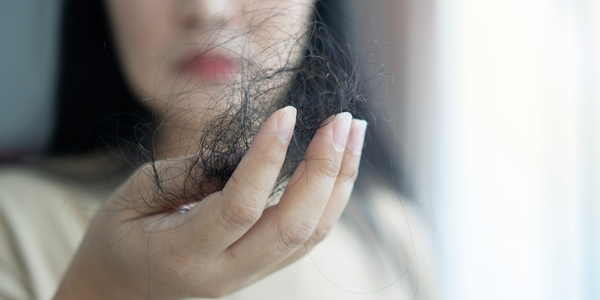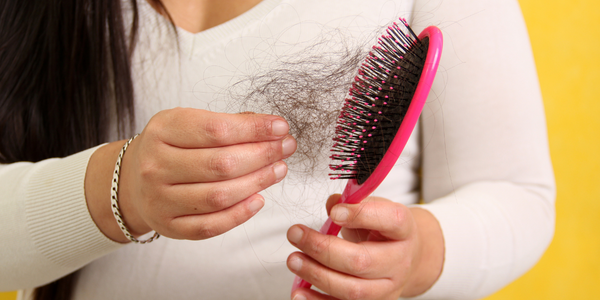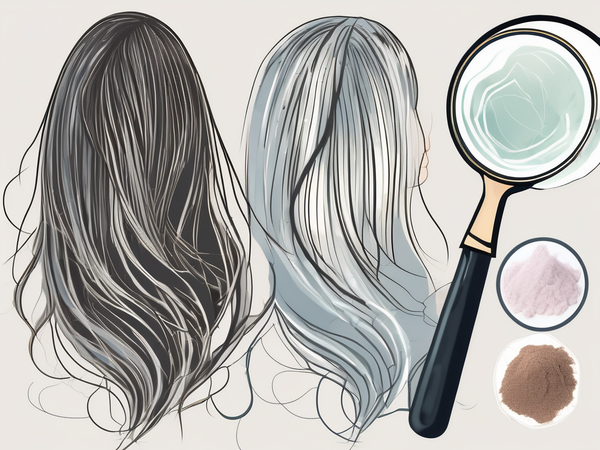How old were you when you realized that cutting your hair frequently doesn't cause your hair to grow faster? Don't get swayed away by the quick fixes for strong lustrous hair shown on Instagram or TV advertisements. With too much information out there, it can be confusing and misleading at times. In an attempt to get lustrous & healthy hair, many people turn to various treatments and products, often guided by popular beliefs and age-old phrases. However, not all commonly held notions about hair care are rooted in scientific fact. It's crucial to differentiate between myth and reality, especially when it involves the health of your hair. This article aims to debunk some of these widespread hair myths, emphasizing the role of vitamins for hair growth and other products like collagen for hair.
Myth 1: Cutting Hair Frequently Makes It Grow Faster
A prevalent hair myth is that frequent trimming can speed up hair growth. Hair growth occurs at the scalp level, not at the ends, so trimming doesn't directly influence hair growth rate. Regular trims do help in maintaining healthy hair by removing split ends and breakage, which can make your hair appear fuller and healthier.
Myth 2: Plucking One Gray Hair Will Result in More
This myth states that plucking gray hair will cause more to grow in its place. Gray hair is a natural part of aging due to the decreasing ability of hair follicles to produce pigment. Plucking gray hair doesn't affect the surrounding follicles. However, frequent plucking can damage the follicle, potentially leading to hair loss in that area.
Myth 3: Brushing Hair 100 Times a Day Makes It Healthier
The old advice of brushing hair 100 times a day to maintain its health is not only outdated but potentially damaging. Over-brushing can cause friction, leading to cuticle damage and breakage. A better approach is gentle brushing to detangle and spread natural oils through the hair.
Myth 4: Coconut Oil is a Cure-All for Hair Problems
While coconut oil for hair can be beneficial due to its moisturizing properties, it's not a universal solution. Coconut oil works well for some hair types but can be too heavy for others, leading to buildup and potentially exacerbating issues like dandruff. It's important to understand your hair type and needs before using coconut oil as a hair treatment.
Myth 5: Vitamins for Hair Growth Can Completely Reverse Hair Loss
While vitamins for hair growth are important for maintaining healthy hair, they are not a magic solution for hair loss. Nutrients like biotin, vitamin E, and vitamin D are important for hair health, but their effectiveness in reversing hair loss is not guaranteed. Hair loss can be due to various factors, including genetics, hormonal imbalances, stress, and health conditions. Vitamins from food or hair care supplements can support hair health and may aid in reducing hair loss, but they are not a standalone cure.
Myth 6: Collagen for Hair Growth is Just a Trend
Collagen, a protein that's crucial for skin, nail, and hair health, is often dismissed as a mere trend. Collagen for hair is crucial as it plays a significant role in supplying the essential amino acids required for hair development. Supplements like collagen for hair growth can support the hair growth cycle, contributing to stronger and potentially faster-growing hair. However, it's not a miracle cure and should be part of a balanced approach to hair care.
Myth 7: Hairfall Supplements Guarantee Hair Regrowth
While hairfall supplements can provide essential nutrients that support hair health, they are not a guaranteed solution for hair regrowth. Factors such as genetics, hormonal changes, and underlying health issues can significantly impact hair growth and may not be fully addressed by supplements alone. A well-balanced diet, sufficient hydration, an active lifestyle, good quality sleep, and stress management coupled with hairfall supplementation may help you resolve your hair fall issues or even aid in hair growth.
Wrapping Up
It's essential to approach hair care with a balanced perspective, understanding that while natural remedies like coconut oil for hair can be beneficial, they're not universal solutions. Likewise, while vitamins for hair growth and supplements play significant roles in maintaining hair health, they are not cure-all for hair issues. The effectiveness of hair fall supplements varies. Debunking these hair myths is crucial to adopting a more informed and effective hair care regimen. Ultimately, the best approach combines a healthy diet, appropriate hair care products, and realistic expectations. Remember, understanding your unique hair type and needs is key to nurturing your hair's health and embracing its natural beauty.
References
https://www.ncbi.nlm.nih.gov/pmc/articles/PMC6380979/
https://www.researchgate.net/publication/329628006_The_Role_of_Vitamins_and_Minerals_in_Hair_Loss_A_Review
https://www.jaad.org/article/S0190-9622(19)31538-5/fulltext
https://jamanetwork.com/journals/jamadermatology/fullarticle/2798840








